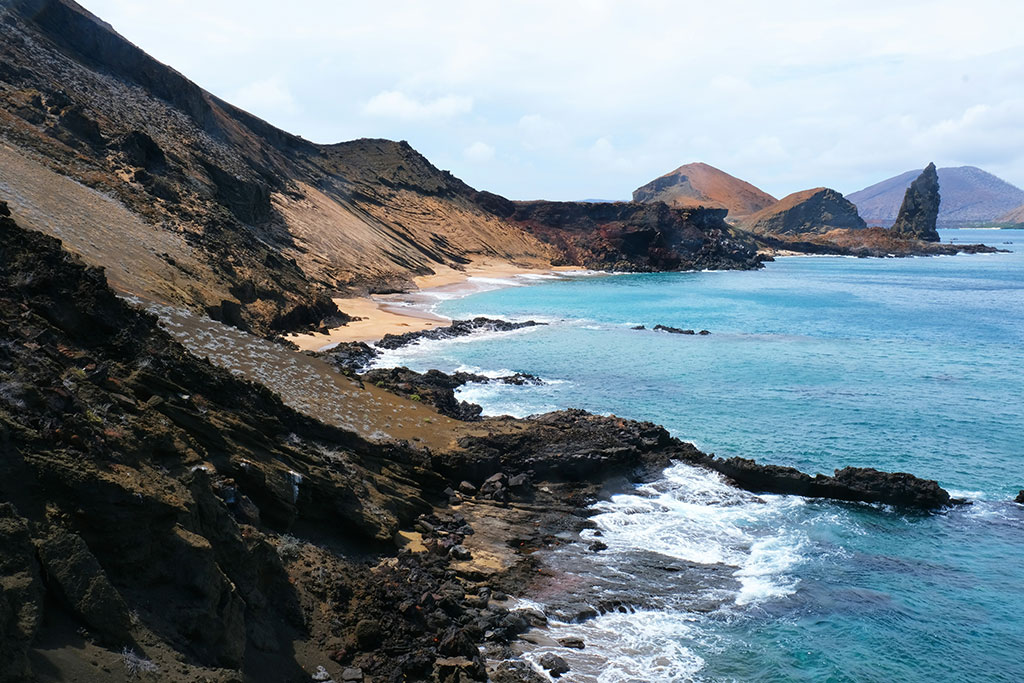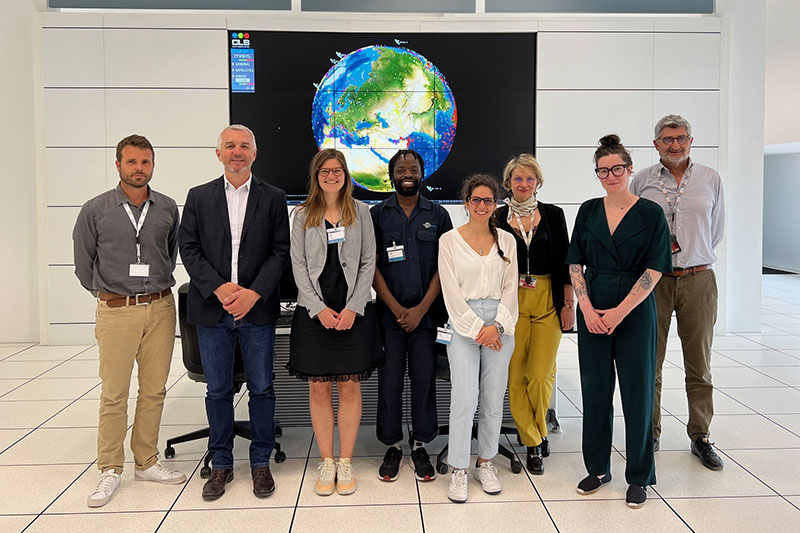Monitoring human activities at sea: CLS solutions presented at IDDRI
- 13 May 2024
- Category: News

Tracking, controlling and monitoring fishing activities for sustainable oceans.
With this in mind, we were delighted to welcome a delegation from IDDRI (Institut du Développement Durable et des Relations Internationales) to our corporate headquarters on May 13, for a productive and enriching meeting. IDDRI, a renowned French think tank and independent research institute, is a benchmark for sustainable development and international governance.
Sharing our know-how on the monitoring of marine protected areas
 Julien Rochette, Director of IDDRI’s Ocean Program, and his colleagues Klaudija Cremers and Alexandra Oliveira Pinto, researchers in international ocean governance, and Frank Okoth-Menya, intern with the Ocean Program, met Stéphanie Limouzin, the Group’s Managing Director, and our experts in sustainable fisheries management.
Julien Rochette, Director of IDDRI’s Ocean Program, and his colleagues Klaudija Cremers and Alexandra Oliveira Pinto, researchers in international ocean governance, and Frank Okoth-Menya, intern with the Ocean Program, met Stéphanie Limouzin, the Group’s Managing Director, and our experts in sustainable fisheries management.
The aim of the meeting was to discover or rediscover CLS’s tried and tested technologies for implementing MCS (monitoring, control and surveillance) measures for human activities on the high seas as part of zonal management tools.
Among these tools proposed by the United Nations Treaty on Marine Biodiversity beyond National Jurisdiction (BBNJ):
- marine protected areas,
- and marine environmental impact assessments.
Our proven THEMIS fisheries monitoring center in the Galapagos Islands
Our experts have been committed to preserving marine ecosystems for almost 40 years and are at the heart of our solutions for a sustainable ocean thanks to our THEMIS fisheries monitoring centers. They have already won over more than 50 nations, and have already produced concrete results.
In the Galapagos, a Chinese fishing boat was boarded in the heart of the marine reserve thanks to the use of our fishing activity visualization platform. The crew was ordered to pay several million dollars in compensation for the damage they had caused to the marine ecosystem by fishing for protected species.
At CLS, we firmly believe in our responsibility towards the environment and in our ability to actively contribute to the achievement of global marine conservation goals through our spatial data-based solutions. CLS contributes to the UN Sustainable Development Goals through 95% of its activities! Our activities are aligned with these goals, and we work every day for a more sustainable and resilient marine future.
